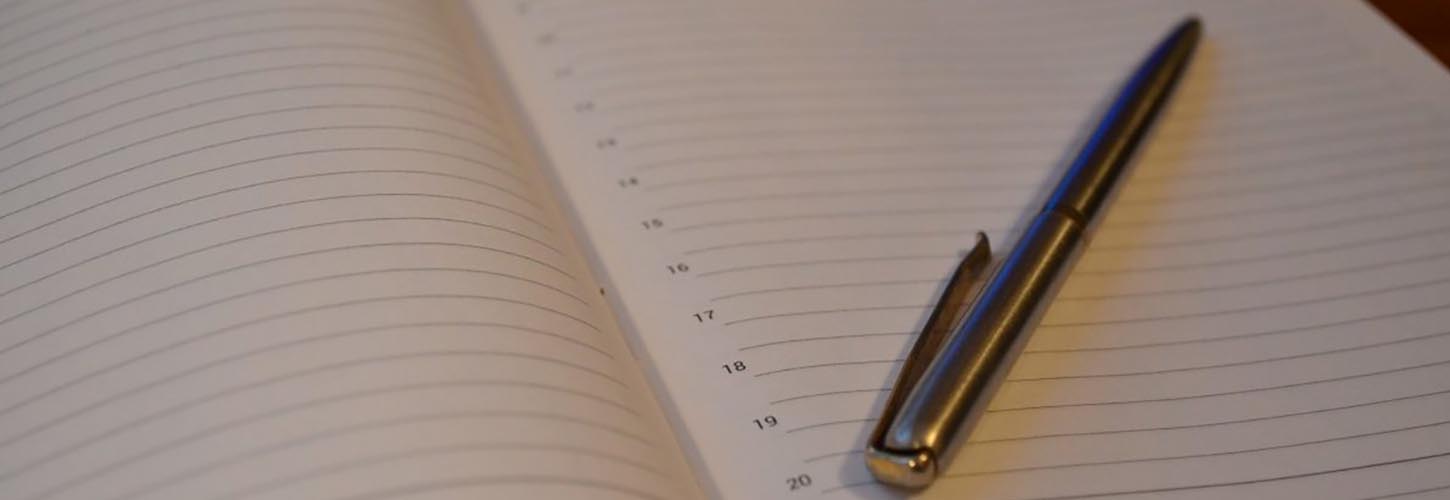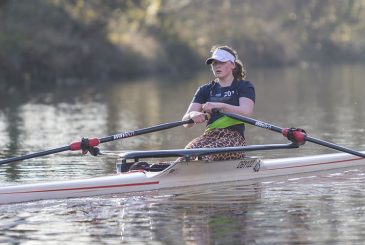Put down your technology. All you need to track your training results are the humble pen and paper
Technology is fast becoming indispensable to sport; from novices to Olympians searching for speed, it can feel like newer is often better. Before connecting yourself to the latest tech, however, your first best move might be (re)considering something far simpler: pen and paper.
While scrawling reflections out by hand may not be for everyone, Rowing & Regatta magazine spoke with two international experts on rowing psychology to ask why the simple act of maintaining a training log might be the most important consideration in your technological toolkit.
Dr Chris Shambrook knows a thing or two about performance. A long-time sport psychologist to Great Britain’s elite rowers, he’s seen what works and what doesn’t when preparing for top results.
Dr Kirsten Barnes understands rowing inside out. The British-born two-time Olympic champion-turned mental performance expert may have raced for Canada, but she cheerfully shares her knowledge and experience here.
Why keep a log?
“Keeping a journal helps you realise everything that’s going on; it helps you keep perspective and see what everything is adding up to,” says Shambrook. “If you get into too much data too quickly, you can become obsessed with something transitory and lose track of the bigger items around success that build confidence.
“It is about a growth versus a fixed mindset,” explains Barnes, who points out that reflecting on training helps develop self-awareness. “The more we learn about ourselves through reflection, the better we interact with one another – and the more we can positively contribute to crew dynamics.”
How to keep a log
“Some people really like to write,” says Barnes, “but I’m talking 60 seconds to five minutes. Start with two questions: ‘What did I do today?’ and ‘How did it go?’ I want athletes to think about themselves as performers and what they are doing regularly to get better, and at the same time, what’s going well.”
“If you get into too much data too quickly, you can become obsessed with something transitory and lose track of the bigger items around success that build confidence”
The log itself could be anything from a notebook to a device or even a calendar, says Barnes.
For Shambrook, a calendar is a good way to start. “A classic year-to-view wallplanner where you are colour coding the quality of training and your satisfaction, red-amber-green, allows you to see bigger patterns,” he says. “These become benchmarks against your rowing expectations.”
Positively improving
Don’t wait until after a session to start reflecting on how it’s going, says Shambrook. “After a few weeks of observing a baseline, [begin to] project ahead to what the quality of days are likely to be. Set realistic plans, then execute them one day at a time.” He compares this ‘preview and deliver’ strategy with planning for a race in getting “the most out of days you were fatigued”.
“You can find something good about training even on the lowest days,” says Barnes, who recommends a 3:1 ratio of three things to work on and one thing that went well. “When it comes to race preparation and race time,” she adds, “flip that, so you are reminding yourself and crew of the things you do well.”
Own your training
“You are owning the responsibility for becoming a better athlete by being curious about how to get better,” Barnes says. “For it to become a habit, figure out what process for logging is best for you. The act of reflecting is what’s important.”
“You are doing it for you,” concludes Shambrook. “When there is a requirement to reflect, make a personal judgement about quality and determine forward plans accordingly to become a great coach of yourself and make use of the great coaches around you.”
Ultimately, technology will continue to advance; understanding how you train and what you need to become better is essential to harnessing it effectively.
Tech tips
Three ways to keep a diary if you can’t live without your tech!
- With a mobile phone in almost everyone’s pocket, logging your training doesn’t have to be any more complicated than opening up the basic memo app on your device.
- Cloud-based apps such as Google Docs allow for easy access from any device so you can fill in your log almost anywhere in whatever format you design.
- The Concept2 online logbook isn’t just for the ergo any more! You can even log your on-water sessions and a section for comments lets you reflect and note how the session went.










